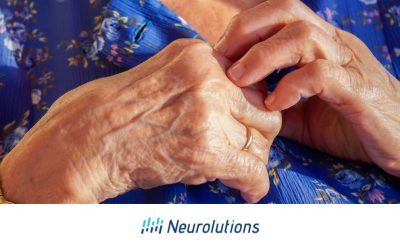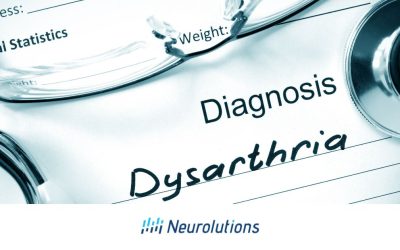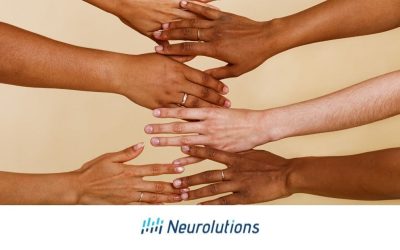Education on sexuality and return to intimacy following a stroke is an important functional topic that is sometimes not addressed by the care team after the stroke has occurred. This can be for a multitude of reasons. Sometimes this subject is not broached first by the care team as there are so many aspects of recovery that first need to be addressed for survivors, such as self-care and medical management.
It may also be that the health care provider has assumed the survivor or partner is not interested or is uncomfortable talking about this subject. Sometimes, it can be that the survivor or partner is not comfortable bringing it up either. This article is intended to assist in starting a conversation and for the education of common questions about intimacy following a stroke.
Is It “Normal” To Have Questions About Sex Or Intimacy Following A Stroke?
YES! After experiencing any sort of medical event it is completely normal to have questions or anxiety about sex and intimacy.
Who Can A Stroke Survivor Speak About Returning To Intimacy Post Stroke If There Are Questions?
It is best to ask questions to whomever you are most comfortable speaking with at the beginning just to get the conversation started. If this means talking to your partner or friend first, that is a good place to start. Next, it will be most helpful to speak with your physician first as some concerns may be best to address medically prior to beginning other therapy to address. Medical concerns may be addressed by your doctor include that of blood pressure concerns, erections, vaginal lubrication, or menstruation, all of which can affect sexual activity. These may be easily addressed with medication intervention or medical procedures.
If other concerns need to be addressed outside of the medical concerns, sexual functional intervention is currently addressed by the framework of occupational therapists. It is addressed by the following domains:
1) compensatory and health promotion
2) intervention recommendations, and disability prevention.
Occupational therapists may be able to address some concerns easily by providing information or specific suggestions related to a particular disability or functional limitations. They may also be able to help by suggesting and training on specific modifications in the environment or use of equipment/change in behavior surrounding the activity. They can help promote a “safe performance” of the activity, changing it to fit the needs of the survivor.
A physical therapist can also address sexual activity as it relates to endurance, balance, and strength. Specifically, physical therapy pelvic floor therapy may be incredibly helpful to address strength or sensory changes in both the male and female pelvic floor and genital area. It may also be invisible to speak with a social worker or counselor to discuss feelings, fears, or emotions surrounding stroke and intimacy that occupational and physical therapists may not be able to address. Speak with your doctor about appropriate referrals for returning to sexual activity with a health professional.
What Deficits Can Impact Returning To Sex And Intimacy Following A Stroke?
Individuals who have experienced a stroke may experience deficits in hemiparesis, sensory loss, bowel and bladder function, proprioceptive deficits, visual problems, communication disorders, swallowing deficits, vision and perceptual deficits, and cognitive deficits. In general, fertility is not affected by stroke. However, stroke can cause changes in libido or the ability to experience an erection or ejaculation. Depression or emotional changes following a stroke can also impact the return to intimacy. Lastly, many individuals who experience a stroke may also already have experienced changes in sexual function due to the aging process. Because of this, sexual dysfunction attributed to aging may intensify or be made worse by the stroke.
Are There Simple Adaptations Are Modifications That Can Be Used To Assist With Deficits Following A Stroke For Engagement In Sexual Activity?
Working with an occupational therapist or physical therapist can be incredibly helpful to address simple modifications or compensatory strategies for sexual activity. Please see the list below for general suggestions. Please, however, discuss with your therapist for further personalization or equipment suggestions.
Receptive Aphasia:
The partner may want to use gestures or touch to guide the activity
Expressive aphasia: incorporate a communication board or augmentative communication strategies into the activity
Communication Deficits:
Integrate the use of a “safe word or routine” into the activity in increase comfort and communication. Use facial expressions to help communication.
Visual Loss Or Visual Perceptional Changes:
Initiate sexual activity to the intact or “strong” side of the visual field to increase comfort and decrease fear of the unknown. Move slow.
Weakness Or Motor Loss:
- Use alternate positions to compensate for weakness such as propping up weak limbs on pillows or lying on the weak side of the body if this is comfortable.
- Additionally, it may be helpful for the unaffected partner to be on top or guide the activity as this they can help provide extra physical support to the weak part of the partner’s body.
- Focus on touching the intact side of the body to help bring awareness and sensations
Fatigue:
Plan activity for the time of day when stroke survivor is less impacted by fatigue. This may be in the morning prior to when the day begins or when energy has not already been allocated to other activities that day. If the stroke survivor is not fatigued, they will be able to focus more attention and motor strength on the activity, increasing safety and pleasure.
Cognitive And Attention Deficits:
Decrease distractions throughout the environment to allow for increased attention to the task. This may include turning off music and TV as well as adjusting lighting for increased awareness of the space and partner. If severe deficits such as memory loss have occurred, using a memory book or reminders can be helpful, and starting the activity off slowly can be helpful to alleviate the unexpected. Focusing on foreplay or other intimate behavior such as touching, caressing, or just talking about the activity can be arousing and help connect partners. Once the survivor is feeling comfortable, with this lead-up, participatory activities, further engagement can be addressed.
Is It Normal To Not Want To Engage In Sexual Activity Following A Stroke?
Yes. This can happen for a variety of reasons. May stroke survivors are fearful of engaging in sexual experiences due to all the new changes that have occurred with their bodies whether it be in the form of physical, communication, or cognitive changes. It can be scary to engage in this activity if unable to control one’s body fully, especially bowel and bladder. Sometimes pain can be experienced post-stroke due to spasticity, atrophy, weakness, or somatosensory changes and it can be painful to engage in intercourse or activities leading to intercourse. Changes in emotions and libido can cause a decreased need and want to engage in sexual relations.
For some relationships, there has been a large shift in dynamics or caregiving experienced by not only the survivor but also the partner/spouse. It can be difficult for either of the people in the relationship to now see their partner as a sexual being. Caregiver books or stroke survivor support groups can be very helpful to establish ways to remain intimate within this new dynamic.
I Can Barely Take Care Of Myself, How Am I Supposed To Take Care Of My Partner Or A Baby? Can I Have A Baby After A Stroke?
Yes. In general, stroke does not affect fertility in the childbearing population. Stroke survivors of childbearing age are also concerned about raising a family post-stroke. It is okay to have fears about pregnancy. Please speak with your doctor about birth control options following a stroke as traditional birth control medications may have adverse impacts on your blood pressure which is a concern post-stroke. It may be necessary to use other interventions such as condoms or other medical interventions.
Lastly and unfortunately, due to a new severe disability or change in role dynamics, the stroke survivor may no longer feel safe engaging in sexual relations with a partner due to safety concerns. Individuals with disabilities are more likely to be affected by abuse or neglect in many forms, including sexual abuse or exploitation. Please talk immediately to someone on your care team or the authorities if you are concerned about your safety in the home or relationship.
In conclusion, sex counseling and education is a very appropriate activity or topic to address following a stroke. If it is important to the survivor or partner, it should be important to their care team as well. Set it as a goal or occupational or physical therapy. It can be a very challenging concern to bring up, but your team has been trained and is professional to handle your concerns and concerns about returning to intimacy. I guarantee they have heard it all before and if they haven’t, you and your care team to work together to address your concerns in this area of recovery.
References:
Ways of Living: Adaptive Strategies for Special Needs (3rd Edition). Christiansen, Charles and Matuska, Kathleen. (2004). Occupational Therapy Association Inc., Bethesda, MD.




